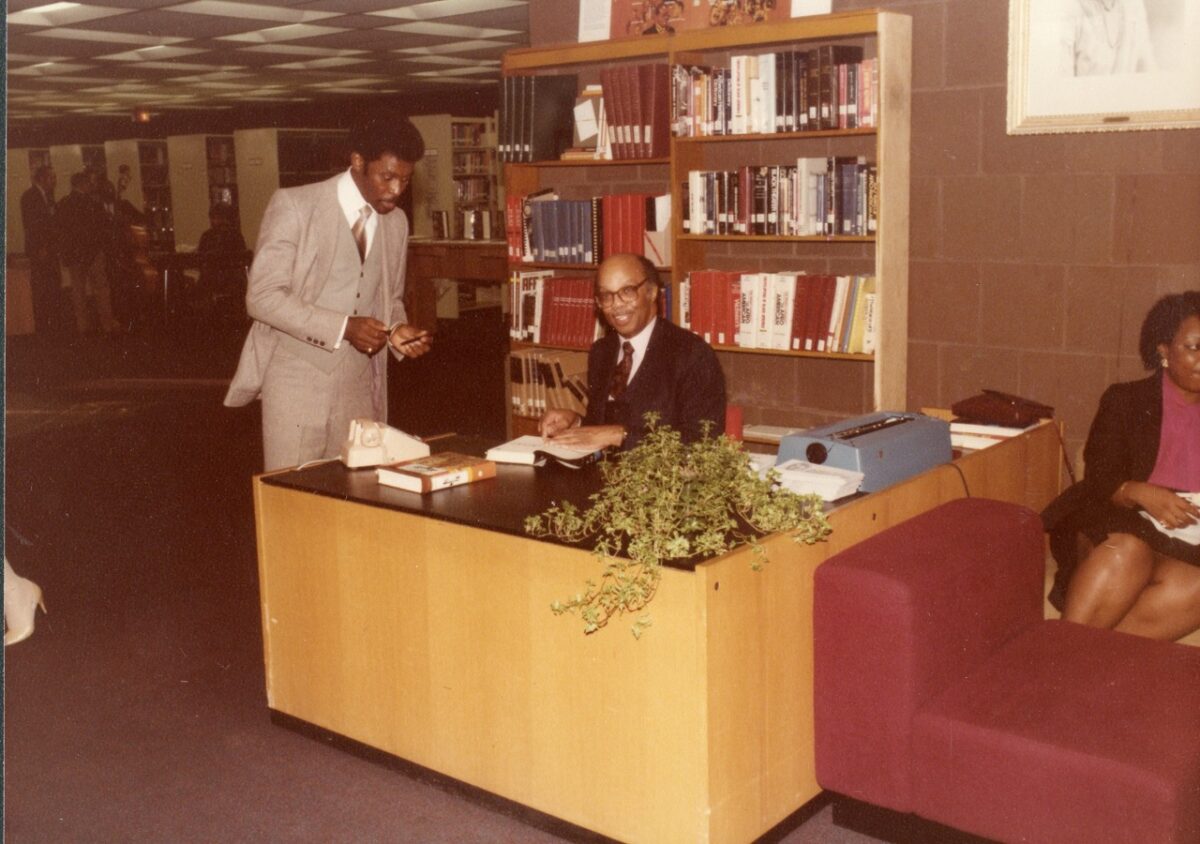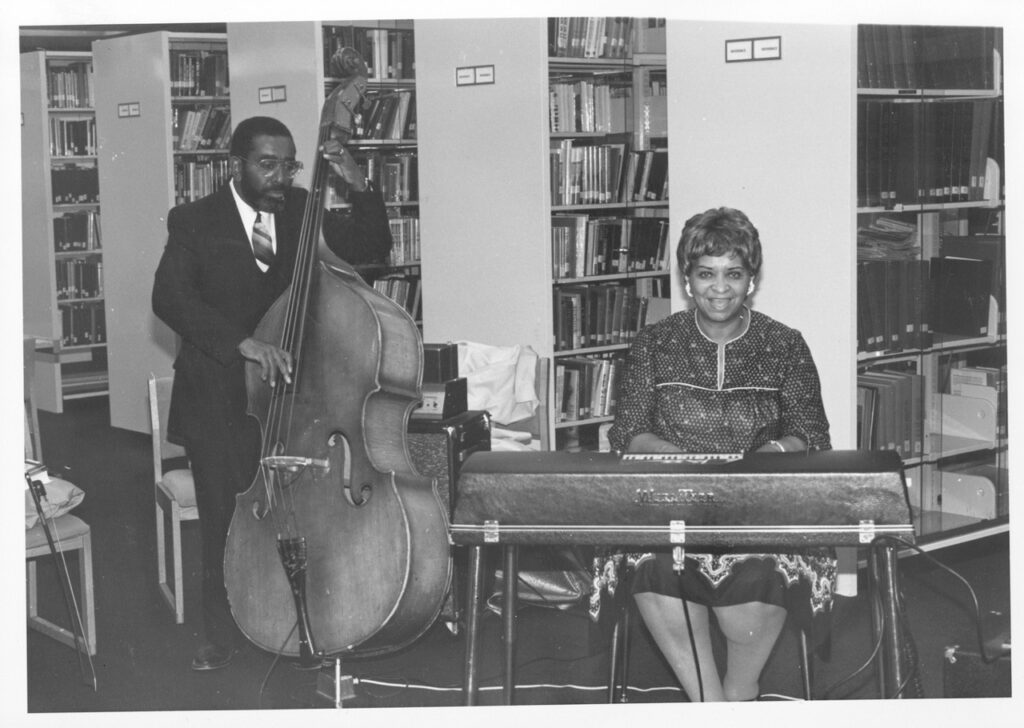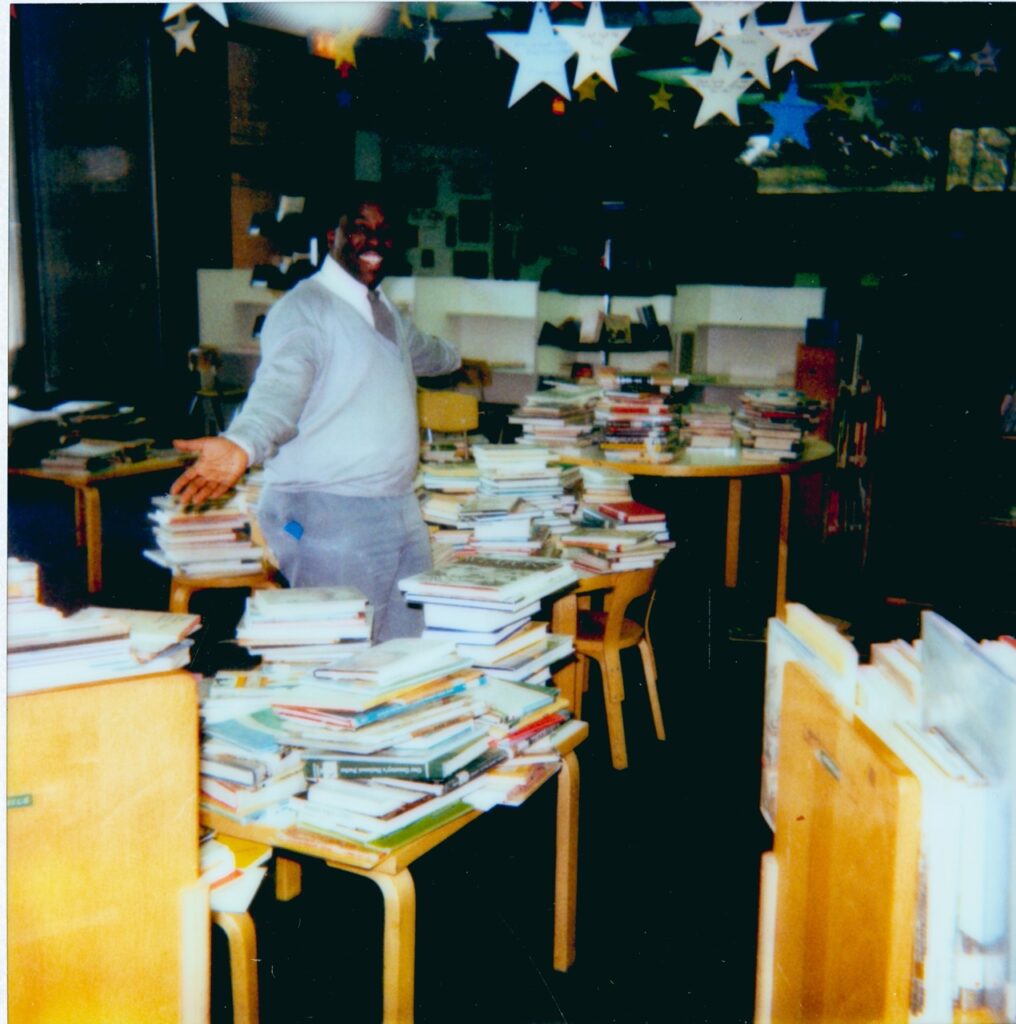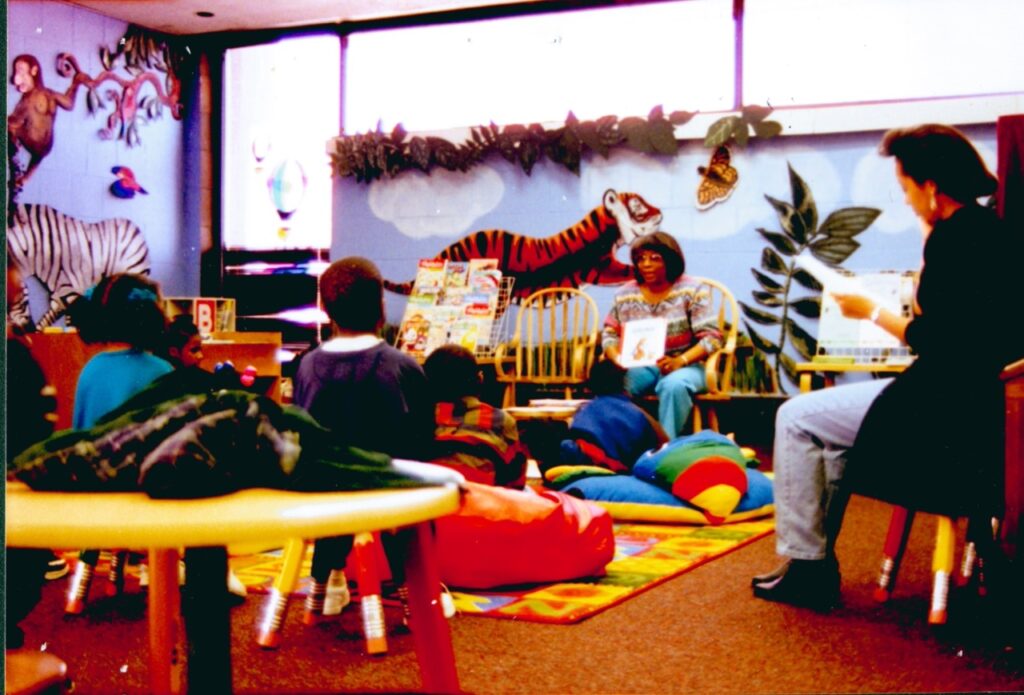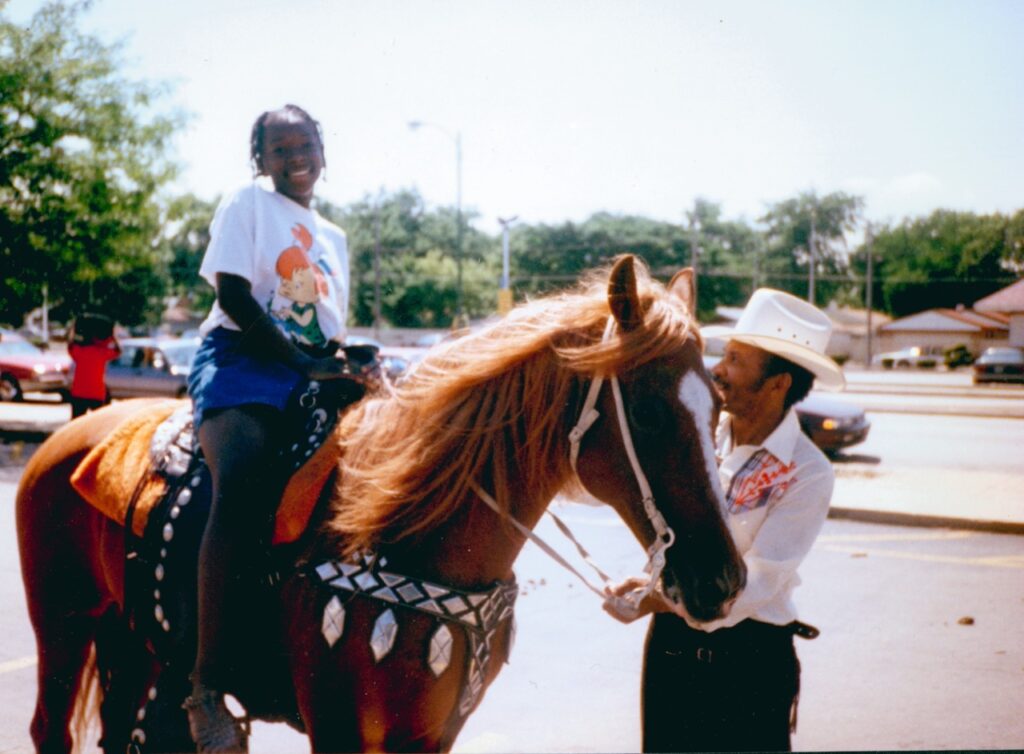In neighborhoods across the country, libraries serve as gathering places, quiet refuges, and essential academic lifelines. They remind us that access to information is a powerful and often overlooked privilege—still free and open to all who seek it.
In Chicago, there are eighty-one libraries, including three regional libraries, spread across the city’s seventy-seven communities. One such location is the Carter G. Woodson Regional Library in Washington Heights. This year will be its fiftieth anniversary.
When Woodson Library first opened at 9525 S. Halsted St. on December 19, 1975, the date was probably no coincidence, for it landed exactly 100 years after the birth of the man for whom the library was named: Dr. Carter Godwin Woodson, the scholar, educator, and historian known as the “Father of Black History.”
Officials at the time described the library’s inauguration as “a day of great rejoicing,” and it was seen as a commitment to offering the community: academic-level resources, world-class Black history archives, and a cultural hub right in the heart of the South Side.
Born in 1875, in New Canton, Virginia, Woodson was the son of former slaves. The fourth of seven children, he worked on his family farm as a boy and in the coal mines of West Virginia as a teenager to help his family make ends meet.
Woodson received his early education in a one-room schoolhouse where he was taught by his uncles, who recognized Woodson’s aptitude for learning early on. By the age of seventeen, Woodson had already mastered most common school subjects. He entered high school at the age of twenty and completed his diploma in less than two years.
Woodson went on to study at Berea College in Kentucky, earned degrees from the University of Chicago, and in 1912 earned a Ph.D in History from Harvard University.
While his life continued to be defined by academic achievements, he didn’t just collect degrees. Woodson also founded important institutions.
In 1915, Woodson co-founded the Association for the Study of Negro Life and History or ASNLH, (now the Association for the Study of African American Life and History or ASALH). In 1926, he launched the precursor to what we now celebrate as Black History Month as a way to promote the study of African American history in schools and communities.
In the spirit of Dr. Carter G. Woodson, Woodson Library has become more than just brick and mortar. For fifty years, Woodson has served as a community anchor and repository for a vast amount of information and special collections. It houses the Vivian G. Harsh Research Collection of Afro-American History and Literature.
Harsh, who was the Chicago Public Library system’s first Black librarian, started the collection and served as a librarian for thirty-four years. Her collection includes over 70,000 books, manuscripts, photographs, and oral histories documenting the Black experience, particularly in Chicago, and is the largest Black archive in the Midwest.
Woodson Library has not only educated the minds of patrons of all ages for half a century, it has also served as a safe and welcoming space where people could gather, grow, and feel seen. The people who use the library know best what the institution means to the community. Some have walked through its doors with their children or grandchildren. Some have met the person who would become their life partner, and others have been patrons of Woodson Library for almost as long as it has existed.
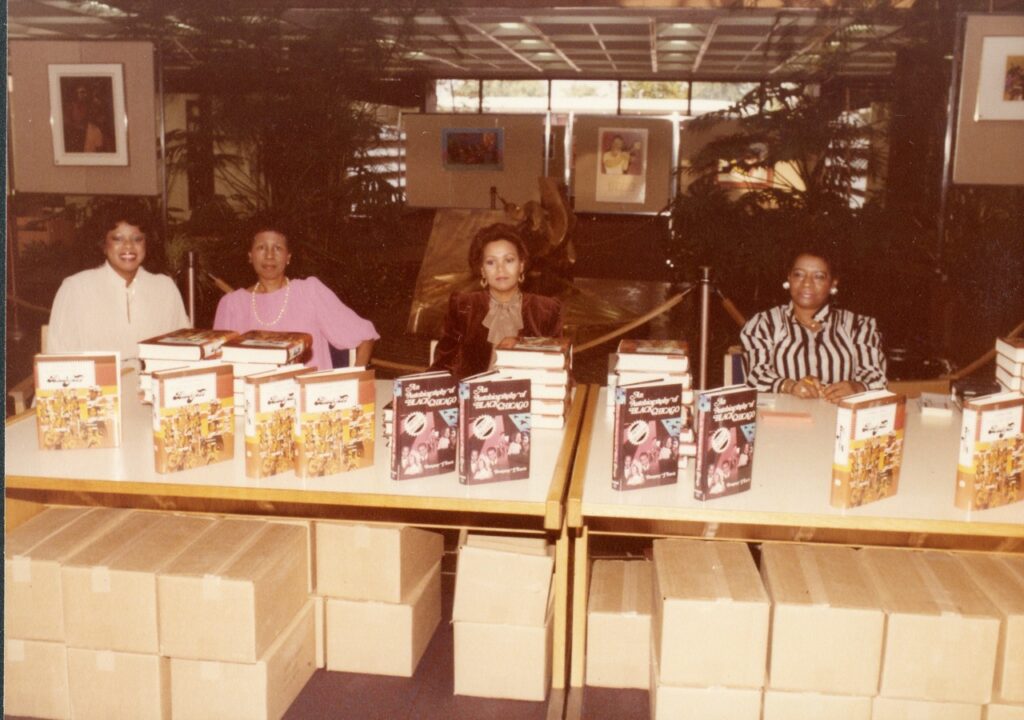
Virdell Scott is a long-time patron for whom that legacy is deeply personal, not only because she’s been visiting Woodson since childhood, but also because it has been a place where she could also spend meaningful time with her grandmother, who was living with dementia.
“I have been a patron of Woodson Library for forty-nine years,” Scott said in an interview with the Weekly. “I was four years old when the library opened in 1975…and my earliest recollection is participating in their summer reading challenge and other reading challenges in kindergarten. Woodson [became] a home-away-from-home for a little girl who was incredibly shy. [It was] a place to check out books and socialize with kids my own age. Woodson provided a safe, nurturing environment for young readers and continues to do so today.”
Beyond its extensive collection of books and archives, Woodson also provides opportunities for the community to partake in social activities such as art classes, book clubs, seminars, author talks, special exhibits, workshops, and movie screenings.
Woodson “offers a wide range of programs for patrons of all ages, from athletes to seniors,” said librarian Quentella Davis, who has worked at Woodson for seventeen years.
“I’ve been here since 2008”, Davis said. “I got transferred here as a library associate in the children’s department, and in December of 2024, I was promoted to librarian. I thought I was gonna be a social worker… that was my dream, but my whole trajectory changed. I ended up working at the library, and I stayed once I got here.”
When she first walked through the doors at Woodson, Davis had no idea the library offered so much beyond just books. Like many patrons, Davis visited the library to get work done, read, or just to enjoy the solitude.
“I didn’t know the library offered everything,” Davis said. “I didn’t know they had all these technical computers that they offer for children and adults….and all the programs going on.” At the same time, “the space was always welcoming, I could get work done without interruptions. If I had any questions, or needed any materials, when I asked a librarian they were always willing to assist.”
Just like the librarians were always willing to help Davis as a young patron, she now pays that kindness forward in her role as a librarian, guiding a new generation of library patrons with the same level of concern and care.
“Coming from very humble beginnings, I am committed to providing the highest level of customer service to every patron that I encounter,” said Davis.
Without question, there’s something for everyone at Woodson—just as the organizers intended it— and dedicated staffers like Davis are ready to lend a helping hand to ensure that patrons leave feeling warm and welcomed.
In his book, The Mis-Education of the Negro, Woodson wrote, “If you can control a man’s thinking, you do not have to worry about his actions.” His belief that education and knowledge could empower people still seems to echo through the halls of Woodson Regional Library fifty years later. As Scott put it, “The key will always be staying connected to the needs of the community.”
To ensure that connection, Woodson is planning a year-long celebration which will include special events taking place on the nineteenth or twentieth of each month and culminating in a grand, year-end celebration in December. Opportunities to obtain limited-edition commemorative merchandise will also be available by visiting chicagopubliclibrary.threadless.com. Chicagoans are also invited to share their stories and experiences about Woodson by visiting chipublib.org/woodson-50th and using #WeAreWoodson50 on social media.
For more information about library events throughout the year or to explore the Harsh Collection, visit chipublib.org, or stop by the library at 9525 S. Halsted St.
Dierdre Robinson is a writer and accounting professional in Chicago. She has a BA in Journalism from Michigan State University. She last wrote about a Chicago Public Library exhibit on Black steelworkers.

